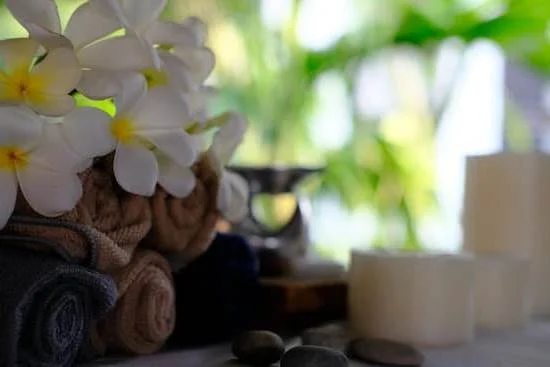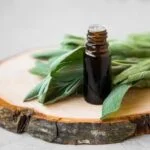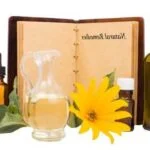An aromatherapy diffuser is an essential tool for harnessing the therapeutic benefits of essential oils. In this introductory section, we will explore what an aromatherapy diffuser is and how it works. Whether you are seeking relaxation, stress relief, or mood enhancement, understanding the role of an aromatherapy diffuser is key to incorporating aromatherapy into your daily routine.
Aromatherapy diffusers are devices designed to disperse essential oils into the air, allowing you to easily breathe in their aromatic and healing properties. These diffusers work by breaking down the essential oils into tiny molecules and dispersing them as a fine mist or vapor. As these microscopic particles are released into the air, they can be inhaled and absorbed by our bodies.
The benefits of using an aromatherapy diffuser extend beyond simply filling a room with pleasant scents. Inhaling essential oils can have a profound impact on both our mental and physical well-being. The aroma from these oils directly affects the limbic system, which is responsible for regulating emotions and mood.
This direct interaction with our brain’s emotional center can promote relaxation, reduce stress, and elevate our overall mood. Additionally, certain essential oils have known antibacterial properties that can help cleanse the air and improve respiratory health.
In summary, an aromatherapy diffuser is a powerful tool that allows us to fully experience the benefits of aromatherapy. By understanding its purpose and how it works to disperse essential oils into the air we breathe, we can effectively incorporate this practice into our daily lives for improved well-being and overall balance. So why do you need an aromatherapy diffuser? The answer lies in unlocking the transformative effects of aromatherapy in your own home or office space.
The Benefits of Aromatherapy for Mind and Body
Aromatherapy has long been recognized for its positive effects on mental and physical well-being. The use of essential oils in aromatherapy can promote relaxation, reduce stress, and improve mood. Inhaling the scents of these oils can have a direct impact on the mind and body, making aromatherapy an effective natural remedy for various ailments.
One of the key benefits of aromatherapy is its ability to promote relaxation and reduce stress. Certain essential oils such as lavender, chamomile, and ylang-ylang are known for their calming properties. When inhaled through an aromatherapy diffuser, these oils can help ease anxiety, promote better sleep, and create a tranquil atmosphere in any space.
In addition to relaxation, aromatherapy can also have a positive impact on mood. Essential oils like citrus scents or peppermint are known for their uplifting properties. Inhaling these fragrances through an aromatherapy diffuser can boost energy levels, enhance focus and concentration, and create a more positive outlook.
Furthermore, inhaling essential oils through an aromatherapy diffuser allows for a more efficient absorption into the body compared to other methods such as topical application or inhalation from a bottle. When diffused into the air, the tiny particles of essential oil are easily inhaled into the lungs and absorbed into the bloodstream. This allows for a greater diffusion of the therapeutic benefits throughout the body.
Overall, incorporating aromatherapy into your daily routine through the use of an aromatherapy diffuser can provide numerous benefits for both the mind and body. Whether you’re looking to relax after a long day or boost your mood and focus during work or study sessions, using an aromatherapy diffuser with high-quality essential oils is an effective way to achieve optimal results.
How an Aromatherapy Diffuser Enhances the Aromatherapy Experience
An aromatherapy diffuser is a device that enhances the aromatherapy experience by providing a more effective and efficient way to enjoy the benefits of essential oils. Compared to other methods such as topical application or inhalation directly from a bottle, an aromatherapy diffuser offers many advantages.
More Effective Dispersal of Essential Oils
One of the main ways an aromatherapy diffuser enhances the aromatherapy experience is through its ability to disperse essential oils into the air in a more even and consistent manner. When using essential oils topically, there is a risk of uneven application and inconsistent dosage, which may impact the overall efficacy. With an aromatherapy diffuser, the essential oils are broken down into micro-particles and effectively dispersed throughout the space, maximizing their reach and potency.
Long-Lasting Aromatherapy Sessions
Another benefit of using an aromatherapy diffuser is that it provides long-lasting sessions without constant supervision or reapplication. Depending on the type of diffuser and settings chosen, you can enjoy several hours of continuous diffusion without interruption. This allows you to create a calming atmosphere or benefit from therapeutic properties for extended periods without having to regularly reapply essential oils.
Safe and Convenient
Using an aromatherapy diffuser is also considered safe and convenient compared to other methods of enjoying essential oils. Direct inhalation from a bottle may involve potential risks such as accidentally spilling or applying too much oil onto your skin. With an aromatherapy diffuser, there are no direct physical contact, reducing the risk of skin irritation or accidental ingestion.
Additionally, operating an aromatherapy diffuser is typically easy and hassle-free. Most modern diffusers are designed with user-friendly features such as timers, automatic shut-off functions, and adjustable mist levels for personalized experiences.
Overall, incorporating an aromatherapy diffuser into your aromatherapy routine can greatly enhance the overall experience. It provides a more effective and efficient way to enjoy essential oils, offering long-lasting sessions, convenience, and safety. In the next section of this article, we will explore the different types of aromatherapy diffusers available on the market and their unique features.
Types of Aromatherapy Diffusers and Their Features
Aromatherapy diffusers come in various types, each with its own features and benefits. Understanding the different options available can help you choose the right diffuser for your needs and preferences. Here are some of the most common types of aromatherapy diffusers and what sets them apart:
- Ultrasonic Diffusers: These diffusers use water and ultrasonic vibrations to create a fine mist that carries the essential oils into the air. They are often equipped with timers, adjustable mist levels, and LED lights for added ambiance. Ultrasonic diffusers are popular for their ease of use, affordability, and ability to humidify the air.
- Nebulizer Diffusers: Nebulizers work by breaking down essential oils into microscopic particles that can be easily inhaled. These diffusers don’t require water or heat, making them ideal for preserving the therapeutic properties of the oils. Nebulizer diffusers are known for their strong aroma output and ability to quickly disperse essential oils throughout a room.
- Evaporative Diffusers: These diffusers use a fan or heat source to evaporate essential oils into the air. They typically consist of a pad or filter where the oil is applied, which is then exposed to airflow to facilitate evaporation. Evaporative diffusers are portable and efficient, but they may not provide as concentrated or long-lasting diffusion as other types.
- Heat Diffusers: As the name suggests, heat diffusers rely on warmth to release the aroma of essential oils into the air. Common examples include candle burners or electric heaters that gently warm a reservoir containing diluted essential oil. While simple and affordable, heat diffusers may alter the chemical composition of certain oils due to high temperatures.
Each type of aromatherapy diffuser has its own advantages and considerations to keep in mind when choosing one for your needs. Factors such as cost, noise level, size of space you want to cover, and personal preference for aroma intensity can all influence your decision. It may be helpful to read reviews and compare features before selecting the diffuser that suits you best.
| Type of Diffuser | Features |
|---|---|
| Ultrasonic Diffusers | – Uses water and ultrasonic vibrations to disperse essential oils into the air
|
| Nebulizer Diffusers | – Breaks down essential oils into microscopic particles for inhalation
|
| Evaporative Diffusers | – Evaporates essential oils using airflow or a fan
|
| Heat Diffusers | – Releases oil aroma through heat-induced evaporation
|
Choosing the Right Aromatherapy Diffuser for Your Needs
When it comes to choosing the right aromatherapy diffuser for your needs, there are several factors to consider. Each person has different preferences and requirements, so it’s important to find a diffuser that aligns with your specific needs. Here is a guide to help you select the most suitable aromatherapy diffuser:
- Room Size: Consider the size of the room where you plan to use the diffuser. If you have a larger space, you may need a diffuser with a higher capacity or one that can cover a larger area effectively. On the other hand, if you plan to use the diffuser in a small room or on your bedside table, a smaller diffuser may suffice.
- Desired Run Time: Think about how long you want the diffuser to run before needing a refill. Some diffusers offer shorter run times of 2-4 hours, while others can last up to 8-10 hours or even longer. If you prefer continuous diffusion throughout the day or night, choose a diffuser with a longer run time.
- Noise Level: Consider whether noise is an important factor for you. Ultrasonic diffusers tend to produce a gentle humming sound when in operation, which can be soothing for some individuals but may bother others. If silence is crucial for you during sleep or work, look for diffusers that operate silently or have adjustable noise levels.
- Ease of Maintenance: Look into how easy it is to clean and maintain the chosen diffuser. Some models require regular cleaning and maintenance, while others are designed with user-friendly features like detachable parts that can be easily washed and replaced.
- Additional Features: Take note of any additional features that might enhance your aromatherapy experience. This could include options like LED lights that change colors for ambiance or timers that allow you to customize the duration of diffusion according to your preferences.
By considering these factors, you can choose an aromatherapy diffuser that suits your individual needs and preferences. Remember that finding the right diffuser can enhance your overall aromatherapy experience and make it more enjoyable and effective. It’s worth investing time in selecting the perfect diffuser to ensure you reap all the benefits of aromatherapy in your daily life.
Essential Oils to Use with Your Aromatherapy Diffuser
When using an aromatherapy diffuser, it is important to choose the right essential oils that will complement your desired mood or purpose. Each essential oil has unique properties and benefits, and selecting the appropriate ones can enhance your overall aromatherapy experience.
- Lavender: Known for its calming and soothing effects, lavender essential oil is a popular choice for relaxation and promoting a restful sleep. Its gentle floral scent can help reduce stress and anxiety, making it ideal for winding down after a long day.
- Peppermint: If you are looking for an energy boost or relief from headaches, peppermint essential oil is a great option. Its invigorating aroma can help improve focus and concentration, making it useful during work or study sessions. It can also provide cooling relief when applied topically to areas of tension or discomfort.
- Eucalyptus: For congestion relief and respiratory support, eucalyptus essential oil is highly recommended. Its refreshing scent can open up the airways and promote easier breathing. This makes it beneficial for individuals dealing with allergies, colds, or sinus issues.
- Citrus oils (e.g., lemon, sweet orange): Citrus essential oils are uplifting and mood-boosting in nature. They have energizing properties that can help combat fatigue and uplift your spirits. Lemon and sweet orange oils are often used to create a fresh and invigorating atmosphere in your home or workspace.
While these essential oils are commonly used with aromatherapy diffusers, there are numerous other options available depending on personal preferences. Some individuals may enjoy floral scents like rose or ylang-ylang for relaxation, while others may opt for more earthy scents like cedarwood or patchouli for grounding effects.
Ultimately, the choice of essential oils depends on your specific needs and preferences. It is always a good idea to experiment and find the scents that resonate with you personally. Remember to start with just a few drops of oil in your diffuser and adjust accordingly to achieve the desired intensity.
| Essential Oil | Main Benefits |
|---|---|
| Lavender | Calming, soothing, reduces stress and anxiety |
| Peppermint | Energizing, improves focus, relieves headaches |
| Eucalyptus | Congestion relief, respiratory support |
| Citrus oils (e.g., lemon, sweet orange) | Uplifting, mood-boosting, energizing |
Maintenance and Care for Your Aromatherapy Diffuser
Proper maintenance and care of your aromatherapy diffuser is essential to ensure its longevity and optimal performance. By following a few simple steps, you can keep your diffuser clean and functioning properly for long-term use. Here is a step-by-step guide on how to clean and maintain your aromatherapy diffuser:
- Regular Cleaning: It is recommended to clean your diffuser after every use or at least once a week, especially if you frequently change essential oils. To clean the diffuser, start by unplugging it from the power source. Then, empty any remaining water and oil from the reservoir.
- Diluted Cleaning Solution: Mix a small amount of mild detergent with clean water in a bowl or sink. Use this solution to wipe down the inside of the reservoir with a soft cloth or sponge. Pay special attention to any areas that may have oil residue or buildup.
- Rinse Thoroughly: After wiping down the inside of the reservoir, rinse it with clean water several times to remove any soap residue. This will prevent any unwanted taste or smell when using the diffuser with essential oils.
- Cleaning the Diffusing Mechanism: Depending on the type of diffuser you have, there may be different parts that need cleaning. For ultrasonic diffusers, gently clean the ultrasonic plate using a cotton swab dipped in rubbing alcohol or vinegar. For nebulizer diffusers, refer to the manufacturer’s instructions for cleaning specific parts.
- Drying and Storage: Once you have finished cleaning, make sure to thoroughly dry all parts of the diffuser before storing it away or using it again. This will prevent mold or bacteria growth in between uses.
In addition to regular cleaning, here are some helpful tips for troubleshooting common issues and ensuring optimal performance:
- Use filtered or distilled water instead of tap water to prevent mineral buildup inside the diffuser.
- Avoid overfilling the reservoir to prevent water from spilling into the diffusing mechanism.
- Follow the manufacturer’s instructions and recommended usage guidelines for your specific diffuser model.
- Store your essential oils in a cool, dark place away from direct sunlight or heat to maintain their quality.
By taking the time to properly clean and maintain your aromatherapy diffuser, you can ensure that it continues to provide you with the benefits of aromatic relaxation for years to come.
Incorporating Aromatherapy Diffuser into Your Daily Routine
Start your day with an energizing blend
- Begin your morning by diffusing a stimulating essential oil blend to invigorate your senses and set a positive tone for the day ahead.
- Consider using oils like peppermint, orange, or lemon to promote alertness and increase productivity.
- Place your diffuser in the room where you usually start your day, such as the bedroom or kitchen, and let the aroma uplift your spirits.
Create a peaceful atmosphere for relaxation
- After a long day at work, unwind and create a calming environment by diffusing essential oils known for their relaxing properties.
- Lavender, chamomile, or ylang ylang are excellent choices for promoting relaxation and reducing stress.
- Set up your aromatherapy diffuser in the living room or bedroom, and allow the soothing scent to help you relax before bedtime or during meditation sessions.
Boost focus and productivity during work hours
- Incorporate aromatherapy into your workspace to enhance focus, concentration, and overall productivity.
- Essential oils like rosemary, basil, or eucalyptus can help improve mental clarity and stimulate creativity.
- Place a compact diffuser on your desk or nearby shelf to create an optimal working environment that promotes mental alertness.
Enhance self-care rituals
- Transform your self-care routines into indulgent experiences by incorporating aromatherapy into activities like bath time or yoga sessions.
- Choose essential oils that complement the specific benefits you seek from these self-care practices.
- For example, use lavender for relaxation during a warm bath or add eucalyptus to enhance respiratory relief while practicing yoga.
Set the mood for social gatherings
- Create a welcoming and inviting atmosphere when entertaining guests by diffusing essential oils that evoke a warm and pleasant ambiance.
- Oils like bergamot, cinnamon, or vanilla can help create an inviting environment for socializing.
- Place your aromatherapy diffuser in the living room or dining area to make your guests feel relaxed and comfortable.
Incorporating an aromatherapy diffuser into your daily routine allows you to enjoy the numerous benefits of essential oils throughout the day. Whether it’s starting your morning with an energizing scent, creating a peaceful atmosphere for relaxation, boosting focus during work hours, enhancing self-care rituals, or setting the mood for social gatherings, there are countless ways to integrate aromatherapy into your daily life.
Experiment with different essential oil blends and find what works best for you in each setting. By incorporating an aromatherapy diffuser into your routine, you can experience the transformative power of aromatherapy in a convenient and enjoyable way.
Conclusion
In conclusion, an aromatherapy diffuser is a powerful tool that can enhance the benefits of aromatherapy and promote overall well-being. By dispersing essential oils into the air, these diffusers allow individuals to experience the therapeutic effects of these oils in a convenient and efficient way.
Throughout this article, we have discussed the numerous benefits of aromatherapy for both the mind and body. Inhaling essential oils has been shown to promote relaxation, reduce stress, and improve mood. An aromatherapy diffuser enhances this experience by effectively dispersing the oils into the air, allowing for a more consistent and long-lasting aroma in your environment.
When choosing an aromatherapy diffuser, it is important to consider personal preferences and requirements. Factors such as room size, desired run time, noise level, and ease of maintenance should be taken into account to ensure you find the perfect fit for your needs.
Incorporating an aromatherapy diffuser into your daily routine can be seamless with a few simple adjustments. Whether it’s setting up a calming atmosphere at home or creating a focused work environment in the office, these diffusers can help you unleash the power of aromatherapy wherever you go.
We encourage readers to take advantage of this powerful tool as they open themselves up to new possibilities for holistic well-being. With a wide range of available options on the market today specifically designed with unique features and benefits catered towards individual preferences and requirements, anyone can find the perfect aromatherapy diffuser to suit their needs.
So go ahead and unleash the power of aromatherapy with an aromatherapy diffuser, and discover a whole new world of wellness and serenity in your day-to-day life.
Frequently Asked Questions
Do I need a diffuser for aromatherapy?
A diffuser is not a necessity for aromatherapy, but it can enhance the experience and effectiveness of using essential oils. Aromatherapy involves the use of aromatic plant extracts to promote well-being and relaxation.
While one can simply inhale the scents directly from the bottle or apply a drop to a tissue, using a diffuser disperses the aroma throughout a room, making it easier to benefit from the therapeutic properties of essential oils. Additionally, diffusion allows for longer-lasting scent exposure and can help create a calming ambiance.
What are the benefits of owning a diffuser?
Owning a diffuser offers various benefits. Firstly, it provides an easy and convenient way to enjoy aromatherapy at home or in any desired space.
Diffusers are usually simple to operate, requiring only water and a few drops of essential oil to emit fragrant mist continuously or intermittently. The soothing scents released by diffusers can enhance relaxation, uplift mood, improve sleep quality, relieve stress, and even have antibacterial or antiviral effects depending on the specific essential oils used.
What is the downside of diffusers?
Despite their advantages, there are some downsides to consider when using diffusers. One potential downside is that certain essential oils may trigger allergic reactions or sensitivities in individuals with respiratory conditions such as asthma or allergies. It’s important to be cautious while choosing oils and start with low concentration levels if you have any concerns about potential adverse effects.
Some people may also find strong scents overwhelming or irritating if used excessively or in poorly ventilated spaces. Furthermore, it’s crucial to clean your diffuser regularly to prevent mold or bacterial growth in the water reservoir, as neglecting this maintenance can compromise air quality and potentially lead to health issues.

Are you looking for a natural way to improve your health and wellbeing?
If so, aromatherapy may be the answer for you.





